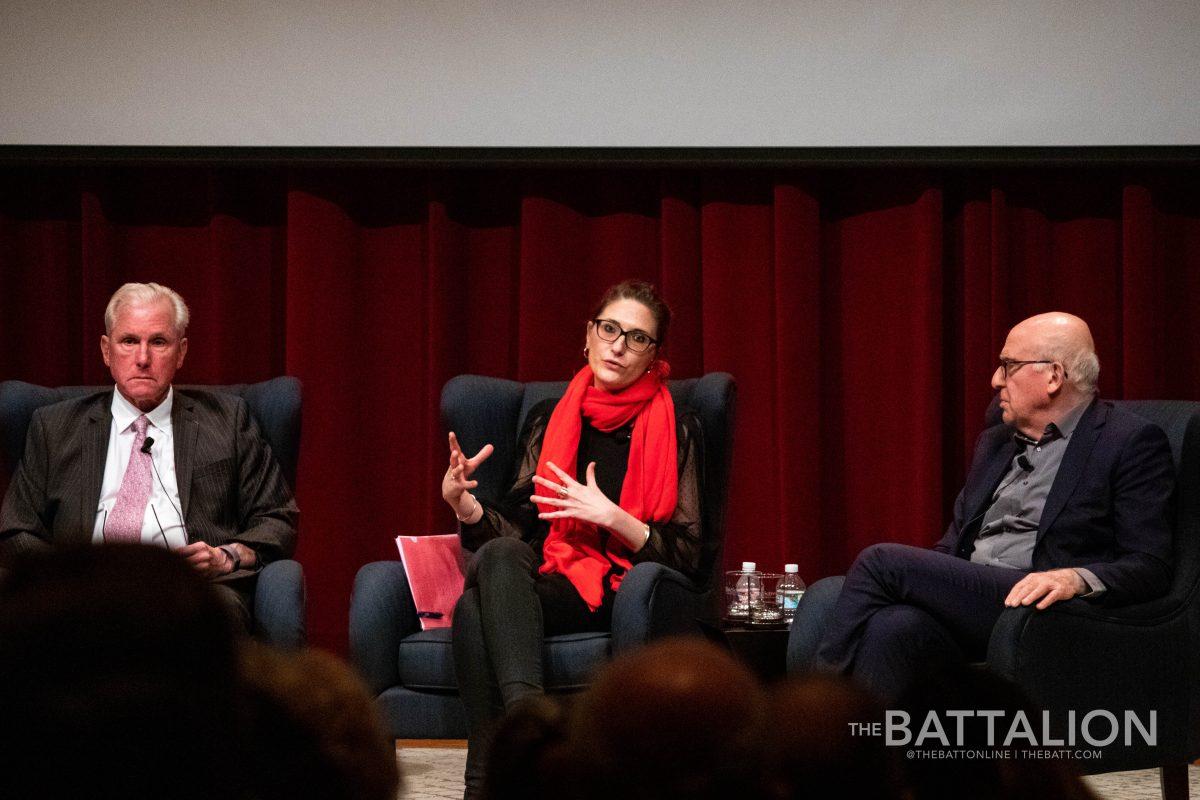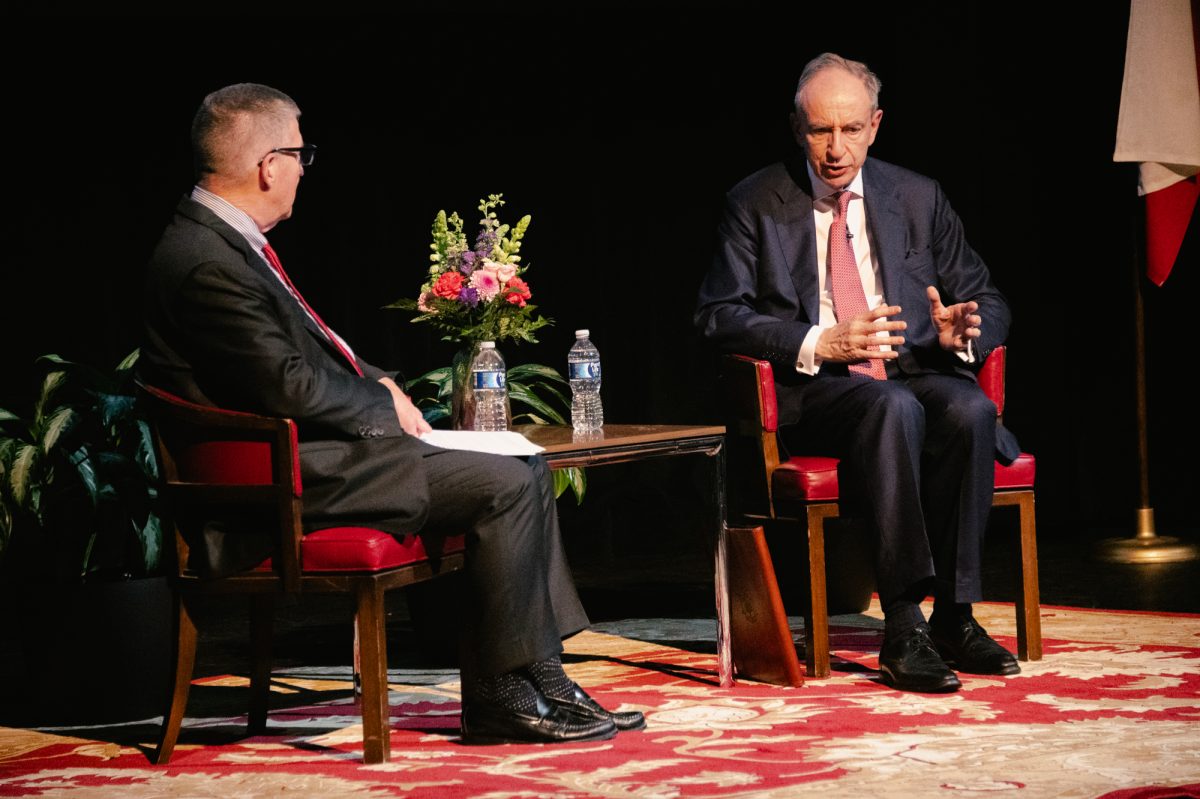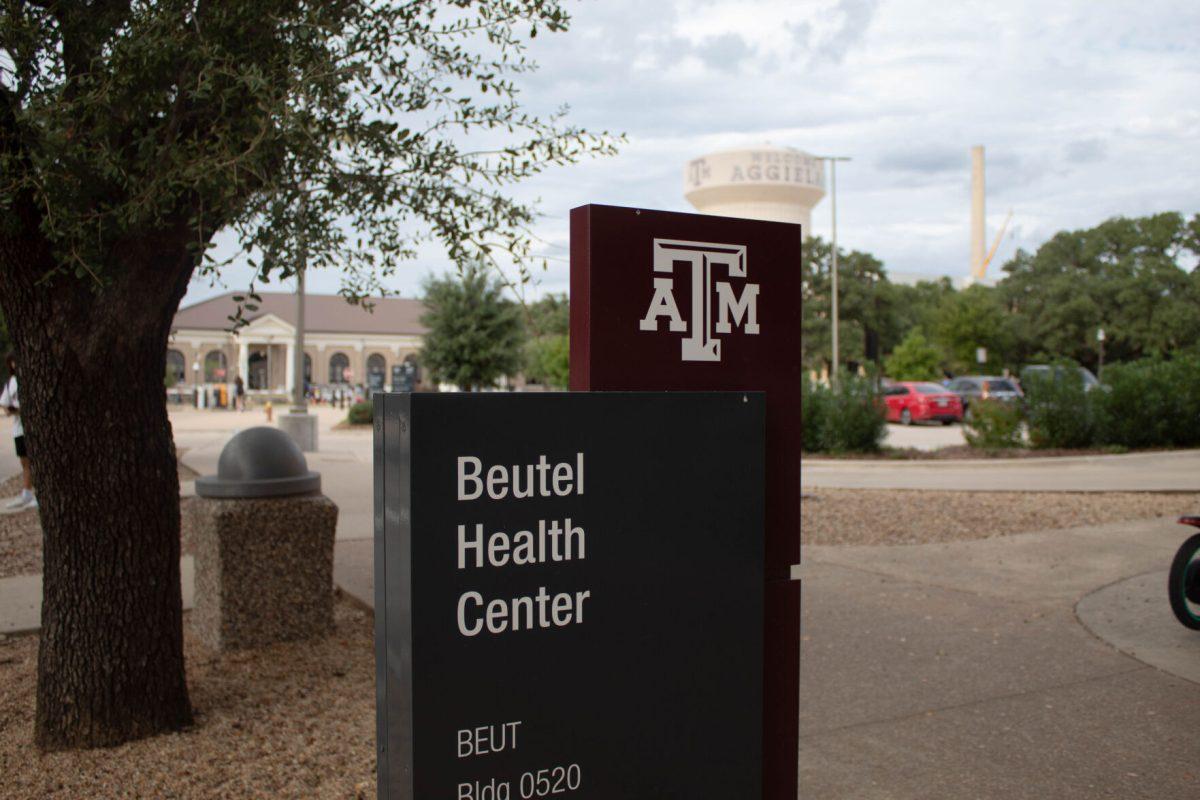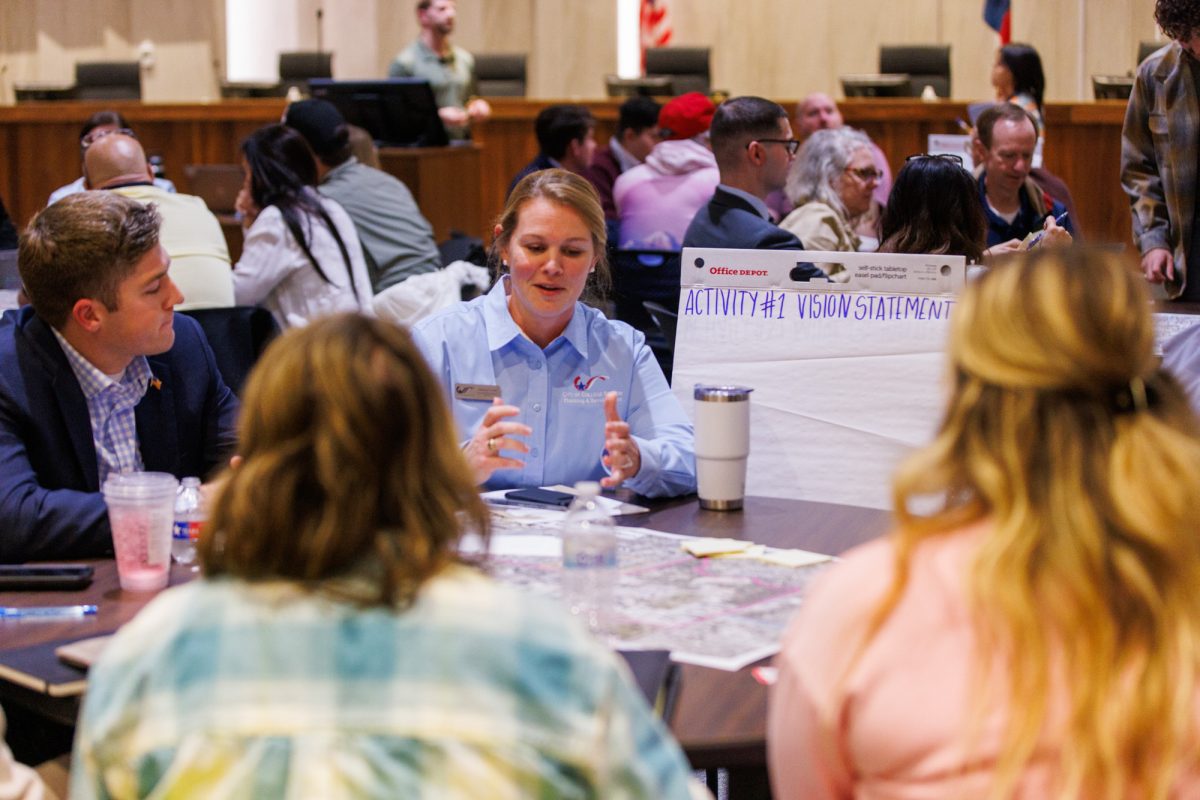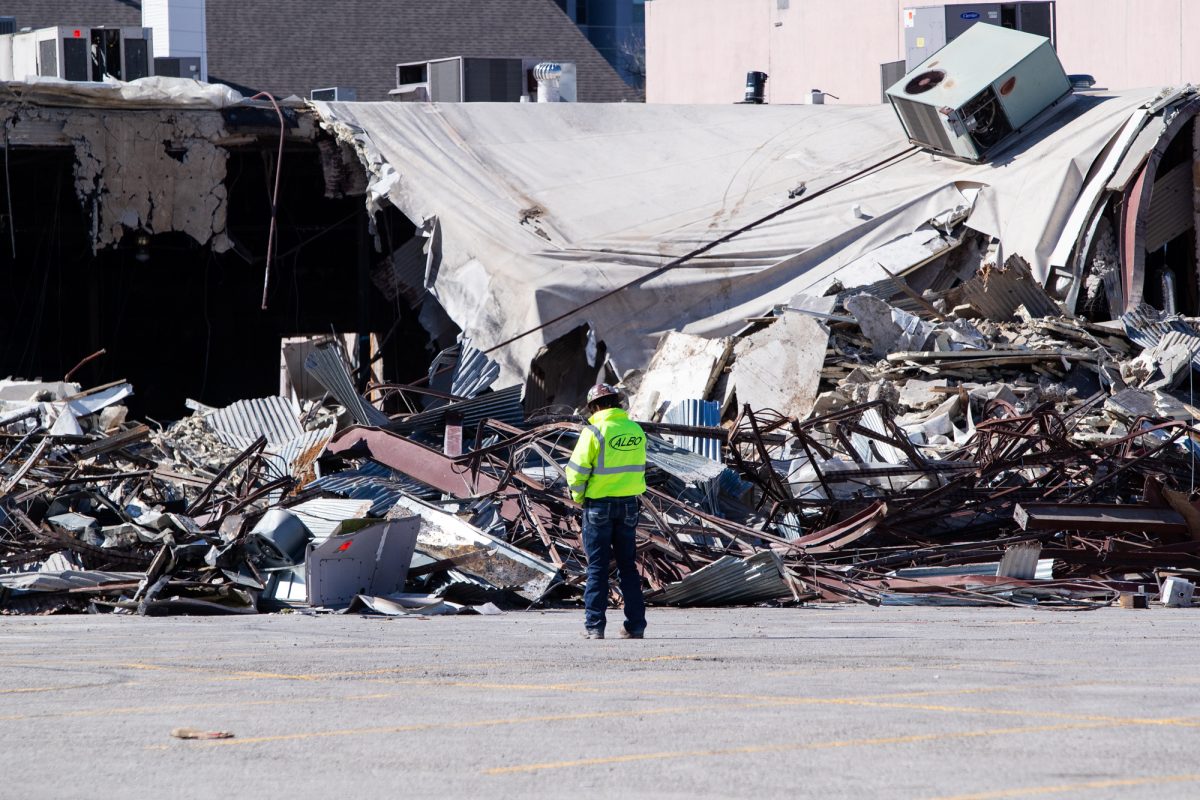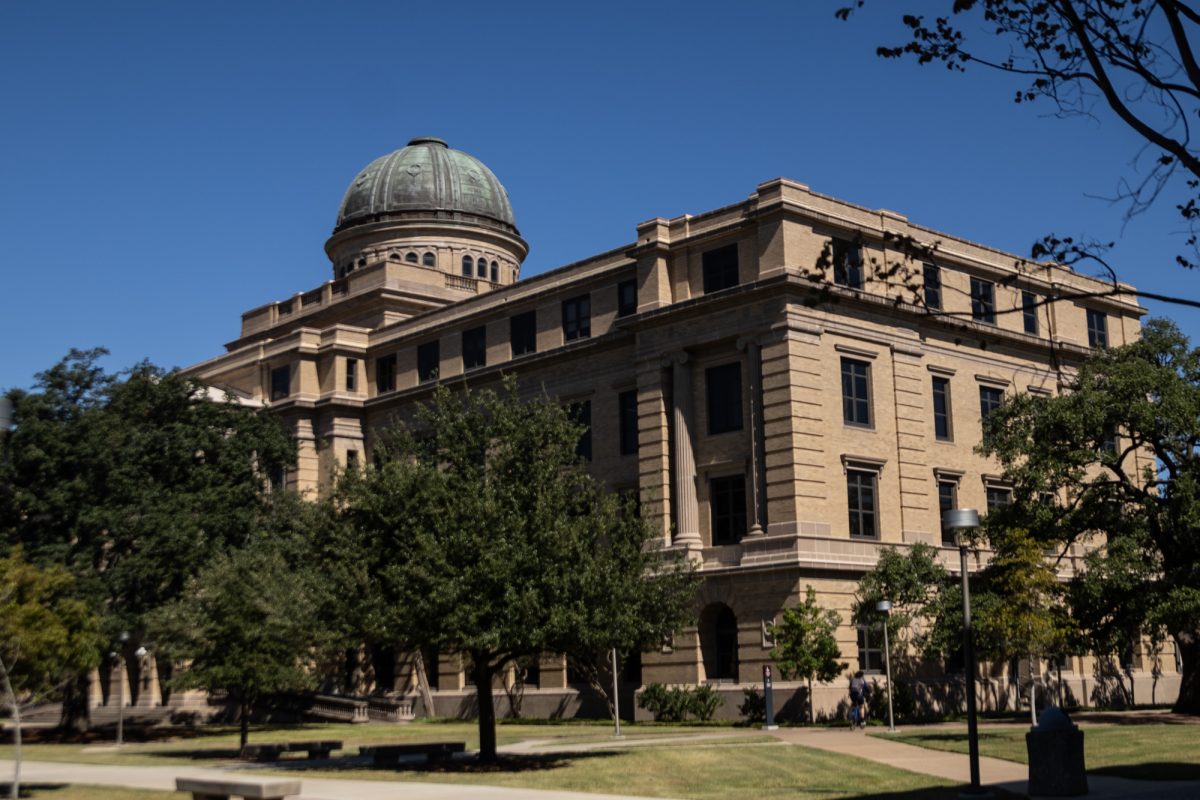The France/TAMU Institute and the Scowcroft Institute of International Affairs at the Bush School of Government and Public Service hosted a panel discussing the Rwandan genocide and its repercussions, with testimony from professionals on the conflict and the how it compares to previous genocides.
Conducted by Richard Golson, an international studies professor at Texas A&M University as well as director of the French Center of Excellence, the event took place in the Hagler Auditorium of the Annenberg Presidential Conference Center on Wednesday, Feb. 26. The panel featured celebrated professionals including Hélène Dumas, a French National Centre for Scientific Research Researcher, Henry Rousso, a director of research at the French National Centre for Scientific Research as well as a Hagler Institute for Advanced Studies at Texas A&M Fellow, and Stéphane Audoin-Rouzeau Director of the School for Advanced Studies in Social Sciences at the University of Paris, who could not attend but whose work was read by Nathan Bracher, an international studies professor at Texas A&M.
Golson emphasized the severity of the Rwandan genocide and why the panel was created.
“It is the most important genocide of the latter half of the twentieth century.” Golson said. “Because this genocide happened in central Africa it is not as well known as it should be… it helps us to understand genocides and the dynamics of genocides and it also gives us insight into a very small country that’s actually become very important in Africa.”
Opening remarks were given by Andrew Natsios, an executive professor at the Bush School and director of the Scowcroft Institute of International Affairs, who cited his experiences in Rwanda, followed by Dumas who spoke about the Gacaca Trials.
“Gacaca Courts were literally reinvented after the genocide, they are the justice of the genocide, and the process was closed in 2012… Before the genocide it was a social mechanism to resolve conflicts about land or cattle, but it was not a common social practice before the genocide, so it’s very important to think that it was reinvented just after the genocide to account for this crime.” said Dumas.
Professor Bracher read Audoin-Rouzeau’s story on his experiences testifying in trials of those involved in the Rwandan genocide, followed by Henry Rousso who spoke on the Rwandan genocide compared to other genocides in history.
“What happened in Rwanda is, in a certain perspective, exceptional.” Rousso said. “You have this situation where almost between 800,000 and 1 million people were killed in 3 months… it is completely different from the Holocaust except for some moments.”
Concluding the event was a brief question and answer session, where Dumas discussed the social implications after the genocide.
“We must know that in Rwanda the social situation is very complex. Now in Rwanda, after the genocide, there are no Tutsis and no Hutus, mention of ethnicity is prohibited by the new government.” Dumas said.
Golson’s overarching goal for the panel was to inform about the circumstances of the genocide for prevention of continuation.
“The idea is that if we understand the dynamics of things like genocide it’s better to forsee them and prevent them in the future in other countries.” Golson said.
Panel discusses Rwandan genocide and its repercussions
February 26, 2020
Photo by Photo by Joshua Sozio
Scowcroft Institute of International Affairs hosted a panel discussing the Rwanda genocide and its aftermath.
0
Donate to The Battalion
$810
$3500
Contributed
Our Goal
Your donation will support the student journalists of Texas A&M University - College Station. Your contribution will allow us to purchase equipment and cover our annual website hosting costs, in addition to paying freelance staffers for their work, travel costs for coverage and more!
More to Discover




